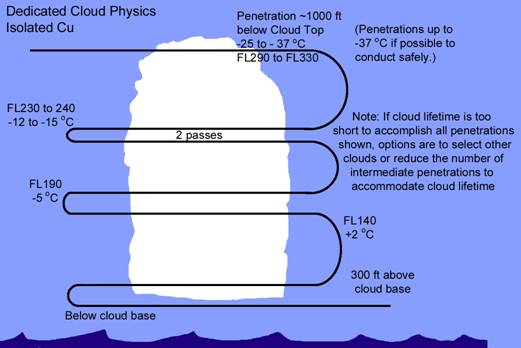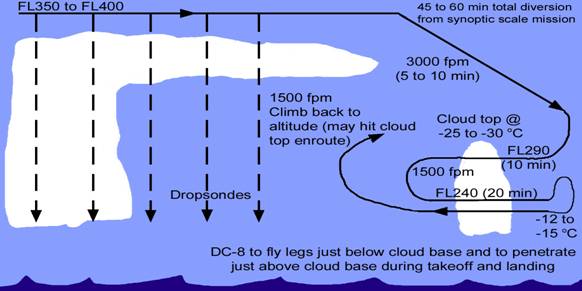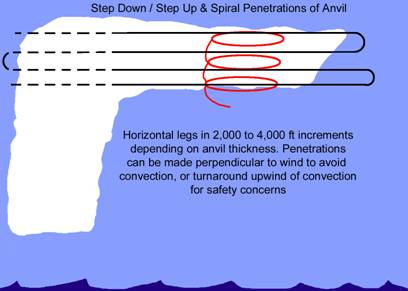
Precipitation Processes (PP)
These missions require enough altitude changes that they are not compatible with most of the EW missions. Whether in clean or filthy air, continental or maritime air, the objective of these missions will be to sample aerosol in the boundary layer (BL) and cloud layers outside of cloud, and particle type and size distributions inside of clouds. At least one set of penetrations should be made a short distance above cloud base to assess PSD and therefore CCN at low levels. These missions should consist of at least two types:
PP-1) Cumulus clouds of varying depths up to cumulonimbus, but visually distinct so that they may be safely penetrated with easy and quick escape routes. The aircraft should penetrate at a variety of levels up to and including anvil level, if present.
PP-2) Mixture of isolated and organized cumulonimbus with some anvils, perhaps large enough to include stratiform precipitation regions. There is also interest in doing a spiral descent through the melting layer in a region of extensive stratiform precipitation. Preference will be given to PP-2 missions within range of NPOL or TOGA radar for safety and for the best science.

Additional modules contributed by science team members:

(above) PP module: 1-hour deviation from EEW mission to penetrate isolated convective clouds

(above) PP module: Anvil penetrations and spirals. EZ comment: Obviously, this could be anything from a 1-hour module up. If spiral extends through melting band, assumes stratiform precip.






